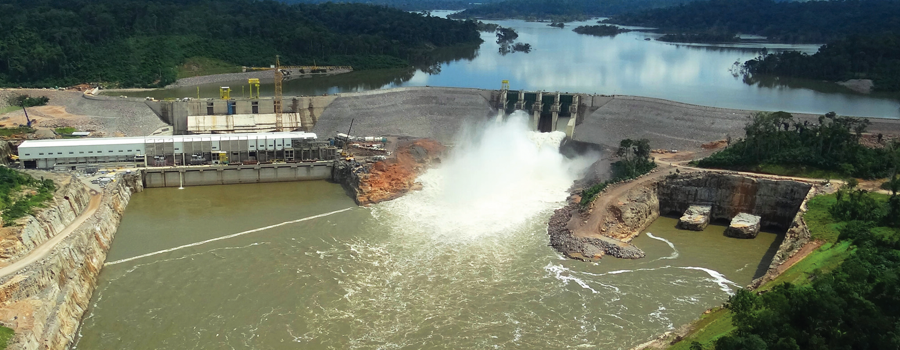- Products and Solutions

Hydro Power: Neoenergia answers the main interesting points on the theme
In Brazil, over 80% of the energy consumed derives from renewable sources, with a highlight for hydro sources.
In Brazil, over 80% of the energy consumed derives from renewable sources, with a highlight for hydro sources. This energy matrix, generated using river water, accounts for over 60% of the total. But, how is this energy produced? Which advantages it provides? To understand the country's main energy source, we address these and other curiosities:
1- Why does hydro power represent the main source in Brazil?
According to the Energy Research Company (EPE), some reasons are operational safety and low cost for energy generation, as, with their reservoirs, they are key for maintaining the operational integrity of the National Interconnected System (SIN), in addition to the fact that it is a renewable source, derived from the wealth of natural resources in the country, which has one of the largest river networks in the world. Due to its continental size, Brazil has in its territory many plateaus and rivers that allow the waterfalls required for energy generation.
2- How does a hydro power plant operate?
The river water is captured and flowed through the plant structures until it reaches the turbine, which has parts connected to the power generator. The water force pushes the turbine blades and the energy of its movement is transformed into electricity. Once used, water is returned with the same quality as before.
3- What are the advantages of hydro power?
In addition to being renewable and clean, with the possibility of reusing water, there are several positive aspects to the use of this energy source, such as the fact that it is cheap and the long useful life of the projects used in its generation. As many plants have reservoirs, it is possible to make a planning according to the demand. That's why hydro energy is more reliable than other renewable sources such as wind energy, which relies on the wind availability.
4- Which are some of the main areas where there are hydro power plants in operation in Brazil?
These are areas near Brazilian rivers with higher capacity in the operation of hydro power plants: Tocantins, São Francisco, Grande, Paraná, Iguaçu and Paranaíba. According to the Brazilian Electric System Operator (ONS), hydro power plants are found in 16 hydrographic basins in the different regions of the country.
5- Did you know that Brazil is one of the countries with the largest installed capacity in hydro power plants?
Brazil is ranked second in the world in terms of installed capacity, with 109.6 GW in 2019, second only to China, which has a power of 356.4 GW, according to the International Hydropower Association (IHA). Next in the ranking are: United States (102.75 GW), Canada (81.39 GW) and India (50.07 GW). Worldwide installed capacity is over 1.3 thousand GW.
News
2025-04-15
Nova campanha da Neoenergia celebra a potência feminina no esporte e reforça apoio às atletas embaixadoras da marca
2025-03-27
Instituto Neoenergia lança chamada inédita unificada de editais para apoiar projetos sociais
2025-03-21
Neoenergia é reconhecida entre as empresas mais exemplares do mundo em sustentabilidade
2025-03-14
Neoenergia lança campanha para fortalecer o relacionamento com o cliente
2025-03-13
